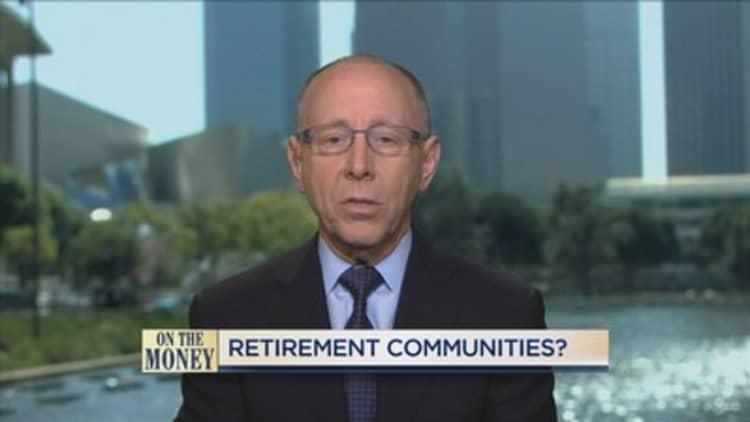
When you imagine retirement, you might picture a spot by the beach or the pool to escape the chilly winters. The reality is that the vast majority of retirees are homebodies, not snowbirds.
More than 80 percent of people age 55 and older in 17 major real estate markets who moved during the past seven years remained in the same county or state, according to an analysis by the CoStar Group, a real estate information company.
"Most people retire in the same metropolitan area. You don't see the migration of snowbirds you would expect to see to the Sun Belt," said Hans Nordby, a CoStar economist who conducted the analysis.
In the U.S., the number of people age 65 and older will nearly double to 83.7 million by 2050, according to the Census Bureau. Demographers forecast that 1 in 5 Americans will be age 65 or older by 2030.
"Demographics are destiny. Baby boomers will drive future demand for age-restricted and empty-nest housing," Nordby said.
Other demographic research finds that retirees would prefer to stay put. Nearly 90 percent of older Americans want to age in place, and 80 percent said they believed their current residence is where they will always live, according to research by the National Conference of State Legislatures and the AARP Public Policy Institute.
Not every retiree shuns beach life. CoStar found that people 55 and older with annual incomes above $75,000 tend to favor markets with warmer weather and retiree-friendly tax situations.
For example, the number of residents age 55 and older who make more than $75,000 annually increased by 83 percent in Myrtle Beach, South Carolina, between 2010 and 2017. South Carolina doesn't tax Social Security retirement benefits and has a $15,000 deduction for other retirement income.
Nordby is quick to point out that smaller cities, like Myrtle Beach, benefit from strong growth in percentage terms because they are expanding from a small base.
From 2010 to 2017, Myrtle Beach's population of people 55 and older with more than $75,000 in annual income increased by roughly 8,600. Los Angeles' pool of wealthy seniors grew by 152,000, more than 17 times that of Myrtle Beach's growth, during the same period.
More from Your Money Your Future:
Rising health costs prevent 60 percent of people from contributing more to their 401(k)s
Married couples have 81 ways to claim Social Security. Here's how to maximize your benefits
Use these homegrown tools to figure out if you could retire early
"Retirees don't want to leave home for a coastal community where they are not connected to anyone," said Paul Irving, chairman of the Milken Institute Center for the Future of Aging, who has developed the institute's Best Cities for
Newer retirees value life-long learning and job opportunities more than great weather, according to Irving.
"For more people, it's about staying engaged, staying relevant and doing impactful work for as long as they can," he said.






